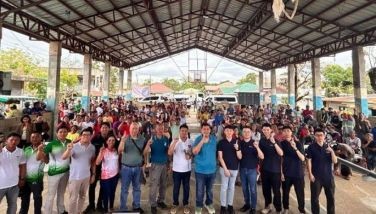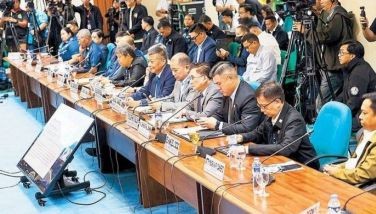Asia’s “delta megacities” like Manila and Calcutta in India could be imperiled by river and coastal flooding brought about by global warming. This is the dire warning made by the World Health Organization in its recently released report. Because of the imminent increase in temperature, sea levels are expected to rise, threatening those living in low-lying areas.
“Global warming has already impacted lives and health, and this problem will pose an even greater threat to mankind in coming decades if we fail to act now,” WHO regional director for Western Pacific Dr. Shigeru Omi said. He added that the effects of climate change would be difficult to reverse over the short term. Millions of people could face disease, poverty and hunger if Asia’s arable lands become unworkable through changes in temperature, rainfall, river flows or pest abundance. In the Marshall Islands and South Pacific island nations, rising sea levels have already penetrated low-lying areas, submerging arable lands, thereby causing people to migrate to New Zealand or Australia. Omi said unusual, unexpected climate patterns — like too much rain or too little — will surely have an impact on food production, especially irrigated crops such as rice, and can cause unemployment, economic upheavals and political unrest.
Health problems may also result from flooding caused by global warming. Omi claimed that even as no country would be spared from the health impacts the “first and hardest hit would be those where the health systems are already overburdened by disease and where under-nutrition is widespread and education poor.” WHO listed the possible consequences of global warming as “increased risks of extreme weather events in the areas where disease-carrying mosquitoes are active, spreading from the tropics to cooler climates in both the northern and southern hemispheres.”
Here in the Philippines, the problems that are now cropping up could also be possible effects of this global warming phenomena. The current issue concerning our rice supply may yet become a full-blown crisis. Also, dengue and malaria cases are on the rise. Dr. Omi said governments need to strengthen current systems providing clean water, immunization, disease surveillance, mosquito control and disaster preparedness.
Our local government units, beginning with the barangays in the grassroots level should focus on how they can manage their existing resources. Practical solutions, cooperation and foresight are keys to avert impending disasters.






























